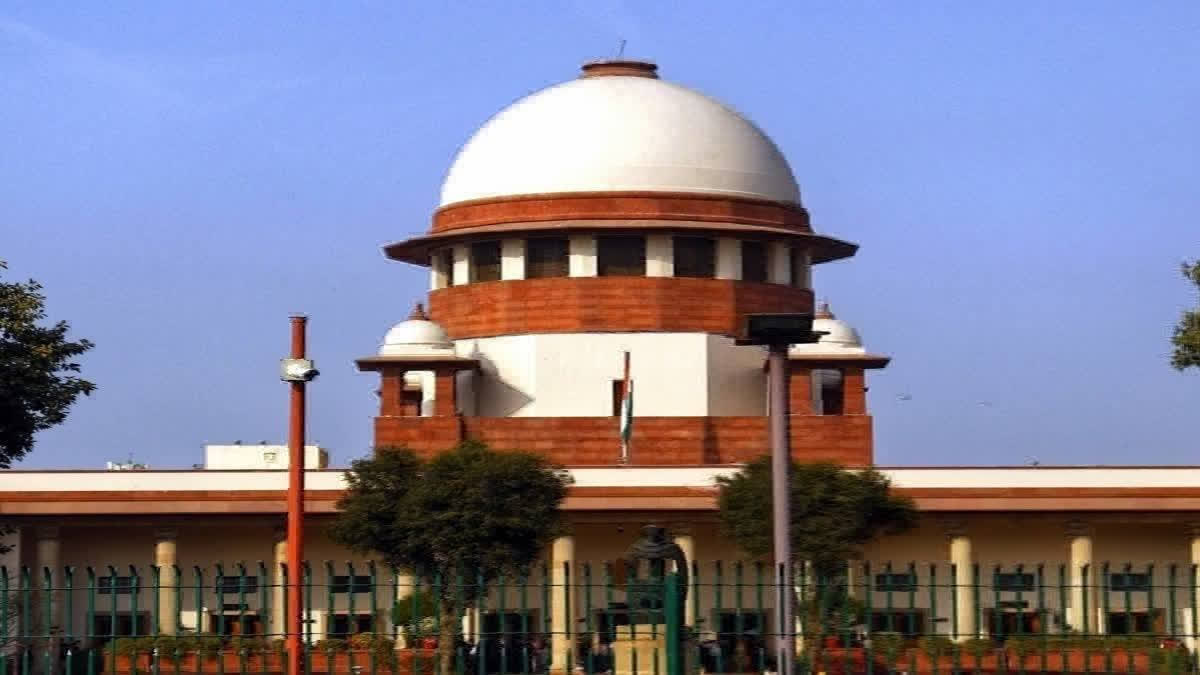New Delhi: The Supreme Court will deliver its verdict on Wednesday on a batch of petitions seeking directions to governments to not bulldoze the property of the accused in criminal proceedings as an extra-legal punitive measure.
The top court had said that it will lay-down pan India guidelines to prevent the use of bulldozers by state governments as a punitive measure to demolish structures belonging to a person or family, immediately after he or she is named as accused of an offence.
A bench of Justices B R Gavai and K V Viswanathan had reserved the judgment on October 1. During the hearing, the apex court had observed that if there is any religious structure in the middle of the road, be it a gurudwara or dargah or temple, it must go and stressed that India is a secular country and the court's directions will be for all, irrespective of religion or community. The apex court’s judgment will come on a plea filed by Jamiat Ulama I Hind and others.
The top court had emphasised that if demolition is found to be illegal then property will have to be restituted and added that it will lay down guidelines for all citizens and not for any particular community on the issue of demolition of properties.
The bench had said: "We are a secular country and our directions will be for all, irrespective of religion or community”. The apex court made it clear that violation of its guidelines regarding demolition will amount to contempt of court and stressed that if demolition is found to be illegal then property will have to be restored.
Regarding encroachment by building religious structures on public spaces, the bench said, "If it is on a public road, footpath, water body or railway line area, it has to go, public safety is paramount.....".
Justice Gavai said unauthorised construction of a person belonging to any community that has to go, irrespective of his religion or belief.
Solicitor General Tushar Mehta appeared for three states -- Uttar Pradesh, Gujarat and Madhya Pradesh – before the court. Mehta contended that it may not be in good taste that the directions were being issued by the court on a few instances alleging that one community was being targeted. Senior advocate CU Singh, appearing for one of the petitioners, submitted that bulldozer action not be used as a crime-fighting measure.
The apex court on September 2, had said it would lay down pan India guidelines to deal with a controversial issue of "bulldozer justice" resorted to by some state governments to raze down structures, dwellings etc.
On November 6, a bench led by then CJI D Y Chandrachud directed the Uttar Pradesh government to pay Rs 25 lakh as interim compensation to one Manoj Tibrewal Akash for the demolition of his house in Maharajganj district for a road widening project. The bench led by then CJI had said justice through bulldozers is unknown to any civilized system of jurisprudence and it is simply unacceptable under the rule of law.



